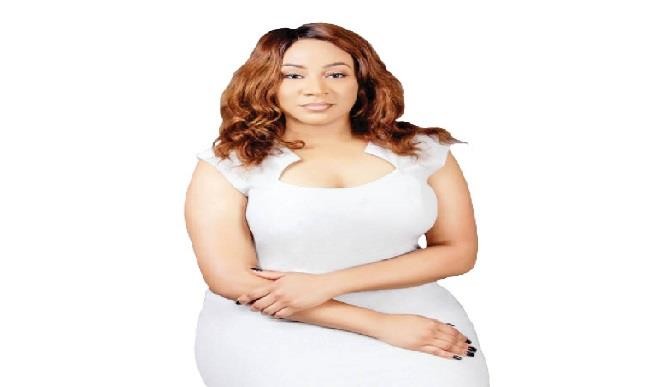
Educational background
I did my kindergarten in Denmark, primary school at Corona, Ikoyi, secondary at Rainbow College for Girls and then went to study Business and Psychology at Reading College, then Business Management and Marketing in Brunel University, West London.
Growing up
I was born in Lagos and I was raised by my mother’s mother as I lost both my parents by the time I was 10. My grandmother is originally from Copenhagen Denmark but has lived in Nigeria since she was 18. She is married to a Nigerian. Her husband, my granddad fought in the Biafran war under Obasanjo and died a retired Brigadier General in 1997, so we grew up with a military upbringing. My grandmother is very strict and disciplined. When talking about identity crisis growing up, I think most people from mixed backgrounds can relate. Not just mixed race but also tribes, you have a feeling that where you mentally and emotionally relate to and accept, many times do not accept you back. I am originally from Obudu, Cross River but If I really sit and study my family tree, I can say I have a bit of all races, religions and tribes within my family so we never grew up understanding division. My cousins that I grew up with are mixed Fulani, Cross River and Danis. I also have cousins from my father’s side that are Delta Igbo, British and Scottish as well and my closest family friends are all Northern Muslims. I grew up very non-biased because in my family, we distinguish people by bad and good and not by skin colour, religion or beliefs. So growing up in a society like Nigeria where discrimination is so normal because being different is rare, so it goes unnoticed by the general population, it’s the few of us that stand that understand. I love my Nigeria so much so instead of giving up, it takes time to point out to people when they are causing divisions without realising it. My background made me who I am and I believe we are designed for a purpose.
Can you give us a brief history of your foundation and the motivation behind starting it
It was founded in 2016 by Dr. Herbert Wigwe. He has always supported children, malaria and prostate cancer projects. He has always wanted to start his own foundation. Two days after our meeting, the organisation was born.
Why is your foundation passionate about teenagers
We are passionate about young people. We try to reach all demographics around because over half of the Nigerian population consists of young people. So the best way to mould the future is to mould those who would be controlling it.
What challenges have you faced in the course of your project
The major challenge I have faced is working with women. I am someone that loves supporting women and being supported by women. I love being around women; I think because I was raised by only women.
The society we are in has managed to turn us all against each other; competing many times with things that do not exist.
Since I moved back to Nigeria, whenever I have a project at hand, it has always been my first instinct to think of the nearest woman I know that can work on the project with me.
The major challenge I faced working with women was that they found me too direct; probably expecting me to beg them into doing work that we were being paid for. So, many times it was not working.
Therefore, I promised myself that instead of declaring that I would not work with women, I would rather learn what the issue was. I then became better at noticing the type of women that could work well with other women and the type that could not.
Women that are goal-focused work well together; they are not focused on the competition or the money, but on the value they can bring to making the project a pure success.
What impact has your foundation made
We started in 2016, and since then we have impacted over 200,000 children and families through our malaria outreach, prostate cancer awareness campaigns, youth seminars and national and international partnerships.
What have you learned from failure
I just have a flood of memories running through my head of all the times I tried to achieve something and failed. It seems like for every 20 attempts I made I recorded 19 failures. I have learnt that failure makes you humble. When I was younger I never understood how you could meet Mrs. Alakija or Mrs. Sola David-Borha; they were so humble. As time went on, I understood failures are just lessons in humility.
Life lessons
Speak less and listen more.
Most rewarding part of my foundation
The most rewarding part is when we have parents and teachers that understand we are doing this from a good place and they support us.
Aspirations growing up
I aspired to be like my grandmother; independent and hardworking. I always wanted to break the gender, race and tribal stereotypes.
Most cherished gift and who was it from
This is hard. I am not really someone that gets attached to things, so I cannot really say; it’s very difficult to say, but I cherish people, living things, moments and experiences. I cherish this opportunity to run this organisation and the other opportunities it has exposed me to making impact on those around me.
Favourite kind of music on replay
Soul music; I love Diana King and Erykah Badu.
First app you check in the morning/bedtime
I wish I could say the Bible app, but it is Instagram. This is bad; I have to change.
Flats or heels
Flats.
What I wouldn’t be caught wearing
Christian Louboutins
Best travel destination
Obudu Cattle Ranch; because it is a perfect holiday destination with international standards, coupled with our local hospitality.
Favourite quote or saying
“Walala wasala”, it means you snooze, you lose in Zulu.
Definition of style
Being comfortable and confident.
Favourite fashion designer
Stella McCarthy.
Favourite perfume, designer bag and shoes
Dolce and Gabanna Velvet Exotic Leather for perfume. I like Stella McCarthy bags, and locally made bags also.
Mum’s advice that has stuck with me over the years
“The less said; the sooner mended.”
Favourite colour, weather
Oxblood, and I’m a summer baby.
Beauty routine
I shower with black soap, bio oil, drink lots of water and I try to sleep early.
Role model(s)
Dr. Herbert Wigwe. He is one of the most simplest and most straight-forward of humans anyone would ever have the privilege of meeting. He only has one goal in life, “progress” in other words; advancement, progression, growth and improvement. This is really something I believe younger ones should work to emulate. From studying him I have come to realise when your focus is progress. It is the best focus one can have as a human. Dr. Herbert is constantly working on all forms of progress, be it personal, work or social, his question is always “How can we make it better”, “how can we take this to the next level”, always when that level is achieved, he is already working on moving on to the next. When ones focus is progress, everything else would fall to place be it money, success in business, personal life, anything, always thinking of ways to improve and make things better. I want to give an example so people might be able to take something from this. Take for example, as a leader one must be able to handle minor or major conflicts and misunderstandings within the work environment, let’s be honest, if there is no conflicts, there is no passion. When Dr Herbert is handling these issues brought to him, his focus is on the shared goal, the task at hand and how this conflict might affect the progress of the said mission, that focus becomes contagious, so you as the ones having conflict would also put your differences aside to achieve progress, another example, I have come to notice, everyone Dr Herbert has around him share that same goal in life, his friends of many years all share the same focus, they all focus on progress this over time has made me seriously restructure my life and my friends, If I knew 5 years ago I wouldn’t be talking to the people I knew then and called brothers and sisters, I wouldn’t believe it, I do not have that many friends now, but all my friends are all focused on growth and progress, this makes them reliable and focused, I have realised when you share that in common, the relationships are stronger, they survive all forms of internal or external conflicts. I think more people should make an effort to be like this, I do not know If he was born this way or he learned it, but I am learning it and I believe everyone should learn to do what they need to do to make progress a goal. This is why he is my role model.
Looking back, what I would tell a younger me
“Trust your instincts.”

 Join Daily Trust WhatsApp Community For Quick Access To News and Happenings Around You.
Join Daily Trust WhatsApp Community For Quick Access To News and Happenings Around You.


